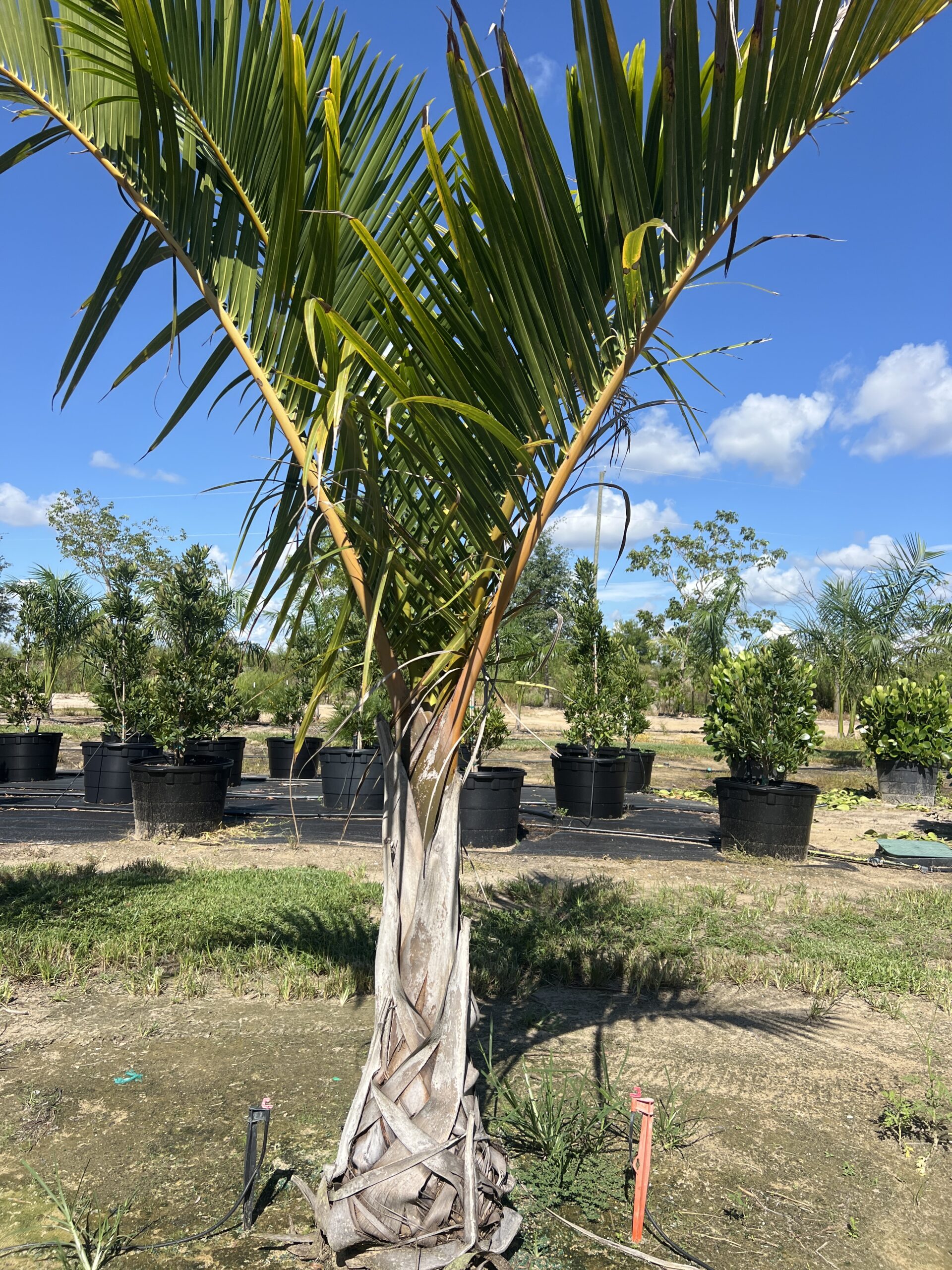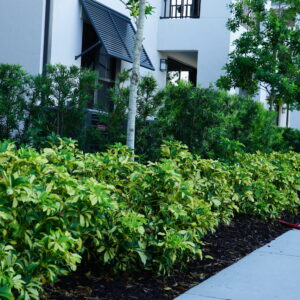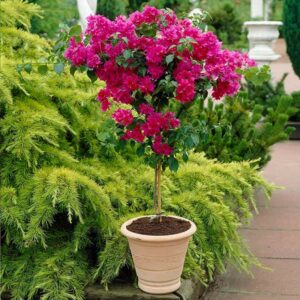Spindle Palm
The Spindle Palm (Hyophorbe verschaffeltii) is a striking tropical palm known for its unique spindle-shaped trunk and bright green to bluish-green pinnate fronds. Native to the Mascarene Islands, it thrives in warm, tropical to subtropical climates, growing 10 to 20 feet tall. Preferring full sun and well-draining soil, it requires regular watering and minimal pruning. Ideal as a specimen plant or in containers for non-tropical regions, it adds architectural interest and exotic appeal to landscapes in USDA Zones 10-11. The Spindle Palm’s distinctive shape and slow to moderate growth rate make it a favored choice for creating a lush, tropical atmosphere.
$2,173.08
Related products
-
All Products
Arboricola Trinette
$22.64 – $52.50 This product has multiple variants. The options may be chosen on the product page -
All Products
Bougainvillea Tree
$166.60 – $1,198.44 This product has multiple variants. The options may be chosen on the product page
Spindle Palm (Hyophorbe verschaffeltii)
Color:
Leaves: Pinnate fronds with bright green to bluish-green leaflets.
Trunk: Distinctive spindle-shaped trunk that is swollen in the middle and tapers at both ends.
Flowers: Small, creamy-white flowers that grow on branched inflorescences.
Fruit: Oval, red to black fruits.
Climate:
Native to the Mascarene Islands in the Indian Ocean.
Prefers warm, tropical to subtropical climates.
Sensitive to frost and requires protection in cooler climates.
Size:
Typically grows 10 to 20 feet tall.
Spread can be around 6 to 10 feet.
Care:
Light: Prefers full sun but can tolerate partial shade, especially when young.
Water: Requires regular watering. Keep the soil consistently moist but not waterlogged.
Soil: Well-draining soil is essential. Prefers sandy to loamy soils.
Fertilizer: Use a palm-specific fertilizer during the growing season (spring and summer).
Pruning: Minimal pruning needed. Remove dead or damaged fronds to maintain appearance.
Zone:
USDA Hardiness Zones 10-11.
Landscaping:
Ideal as a specimen plant or focal point in tropical and subtropical landscapes.
Suitable for container growing, which allows it to be moved indoors during cooler months in non-tropical regions.
Complements other tropical plants and can be used in mixed planting beds for a lush, exotic look.
Additional Info:
Propagation: Typically propagated from seeds.
Pests/Diseases: Can be affected by common palm pests such as spider mites, scale, and mealybugs. Also susceptible to lethal yellowing disease.
Growth Rate: Slow to moderate, with a distinct spindle-shaped trunk forming over several years.
Wildlife: Not a significant attractant for wildlife but adds ornamental value to gardens.
Interesting Fact:
The Spindle Palm gets its name from its unique trunk shape, which resembles a spindle or bottle. This distinctive feature, along with its elegant fronds, makes it a popular choice for adding architectural interest and tropical charm to gardens and landscapes.
| Size | 5-10ft |
|---|



